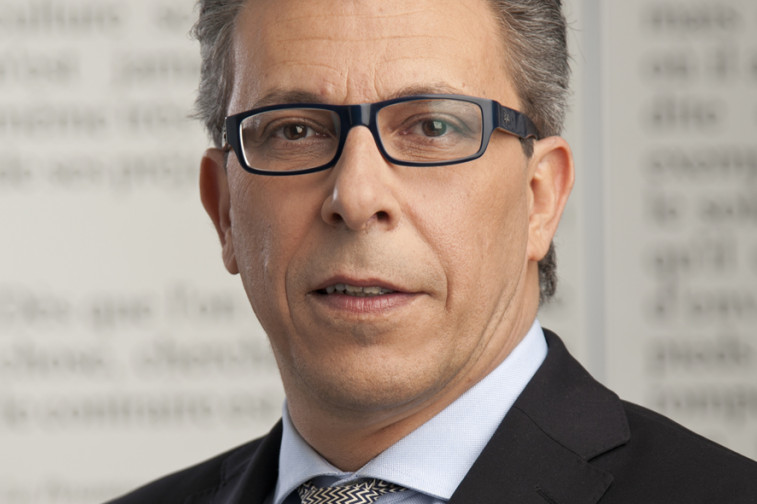PwC Luxembourg - IPCC carbon budget to 2100 will be used by 2034 according to PwC analysis
Carbon budget limits are now within the planning cycle of major infrastructure and business investment decisions increasing the risk of stranded assets
What we have yet to see is the quartet of CCS, nuclear, biofuels and energy efficiency decoupling growth from carbon. We've gone over the carbon cliff. It's time figure out the steps that are going to get us back. We've also got to question now whether our assumptions of long term growth are reasonable and compatible with a future where we fail to limit climate change
Laurent Rouach, partner, Sustainability Leader at PwC Luxembourg
According to PwC analysis, the world is on track to blow the 2°C carbon budget, estimated by the IPCC for the next 89 years, within 21 years. This puts the world on a path consistent with potential global warming of around 4°C by 2100, the most extreme scenario presented in the recent IPCC 5th Assessment Report on climate science. The results, from the 5th annual PwC Low Carbon Economy Index, examine the amount of energy-related carbon emitted per unit of GDP needed to limit global warming to 2°C.
The report warns that this level of warming “will have serious and far reaching implications.” Current investment planning cycles for major business and infrastructure investments now need to factor this into their decision making.
It finds that policies and low carbon technologies have failed to break the link between growth and carbon emissions in the global economy. The world’s energy mix remains dominated by fossil fuels:
- Reductions in carbon intensity globally have averaged 0.7% per year over the past five years – a fraction of the 6% reductions now required every year to 2100
- The G7 averaged a 2.3% reduction while the E7 – which includes much of the manufacturing base of the global economy – only managed 0.4%
- US, Australia and Indonesia achieved significant reductions in carbon intensity in 2012, but no country has sustained major reductions over several years
- While the hydraulic fracturing revolution has helped lower emissions in US, cheaper coal contributed to higher coal usage elsewhere, for example in the EU, raising concerns that decarbonisation in one country can just shift emissions elsewhere.
If the world continues at current rates of decarbonisation, the carbon budget outlined by the IPCC for the period 2012 to 2100 would be spent in less than a quarter of that time, and be used up by 2034. Emissions over and above that budget would be increasing the chances of dangerous climate change, with average warming of surface temperature projected to be beyond 2°C.
Laurent Rouach, partner, Sustainability Leader, said: “G20 countries are still consuming fossil fuels like there’s no tomorrow. Despite rapid growth in renewables, they still remain a small part of the energy mix and are overwhelmed by the increase in the use of coal. The results raise real questions about the viability of our vast fossil fuel reserves, and the way we power our economy. The 2 degrees carbon budget is simply not big enough to cope with the unmitigated exploitation of these reserves.”
Energy efficiency progress was one bright spot in the analysis. 92% of the small reduction in carbon intensity achieved last year is down to improvements in energy efficiency with the remaining 8% through a shift towards a cleaner energy mix. Italy, the UK and Argentina rank as the most energy efficient economies in the G20, consuming less energy for every $m of GDP generated than their counterparts. But the report warns that there is a limit to which we can cut energy use per unit of GDP.
Five years ago, our global decarbonisation target was 3.5% per annum, now the challenge nearly doubles to 6%. This is over eight times our current rate of decarbonisation, a level never achieved before, let alone sustained over decades. To achieve what the IPCC deems the ‘safe’ amounts of carbon in the atmosphere to limit the extreme impacts of climate change, would require halving carbon intensity within the next ten years, and reducing it to one-tenth of today’s levels by 2050. By 2100, the global energy system would need to be virtually zero-carbon.
The firm’s analysis assumes long term moderate economic growth in emerging economies, and slow steady growth in developed economies. But, failing to tackle climate change is unlikely to result in such a benign scenario of steady growth. Something’s got to give, and potentially soon. This has implications for a raft of investments in carbon intensive technologies that are currently being planned and executed today.
"What we have yet to see is the quartet of CCS, nuclear, biofuels and energy efficiency decoupling growth from carbon. We've gone over the carbon cliff. It's time figure out the steps that are going to get us back. We've also got to question now whether our assumptions of long term growth are reasonable and compatible with a future where we fail to limit climate change”, concluded Laurent Rouach.
You can download PwC Low Carbon Economy Index on PwC Luxembourg website.
Communiqués liés
2023 : une année de transition et de transformation
Lors de l’Assemblée générale qui s’est tenue le 24 avril 2024, les acti...
Cargolux posts profit for 2023
The Cargolux Group (Cargolux) generated a positive net result for its 2023 finan...
Gcore Recognised as Highly Commended in the Industry Innovat...
Gcore acknowledged for successful launch of first AI speech-to-text solution for...
MOMENTUM 2024 drives sustainable solutions forward
Deloitte’s annual MOMENTUM Conference fosters a dynamic exchange between indus...
Nouvelle recrue au service client de NO-NAIL BOXES : Nadine ...
NO-NAIL BOXES, le fabricant luxembourgeois de caisses pliantes en bois contrepla...
Réseau ETRE est le nouveau lauréat du Degroof Petercam Fou...
Réseau ETRE remporte la sixième édition du Degroof Petercam Foundation Award....
Il n'y a aucun résultat pour votre recherche







